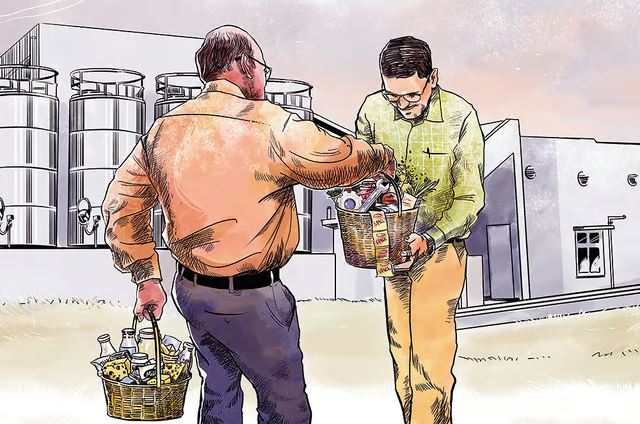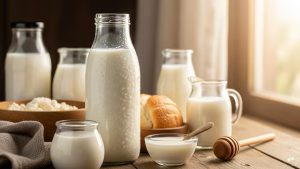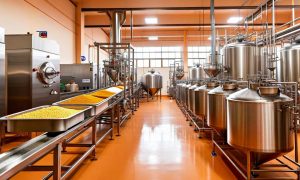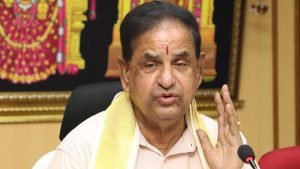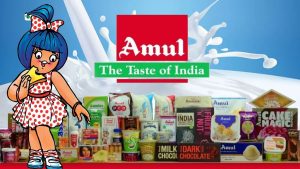
India’s refusal to open its dairy market has complicated trade negotiations for years. As global partners demand concessions, is the cost of protectionism outweighing benefits?
A year before India shook off the yoke of colonialism and emerged as a sovereign nation, the country’s dairy sector had already broken off from imperial chains by switching to the cooperative model. The country, for the past many years, has been the largest milk producer in the world, contributing nearly 25% of the global milk supply. And Indians are the largest dairy consumers in the world. The relationship works. But ever since the country opened its economy in 1991, a number of nations have been eyeing its dairy market.
New Zealand was the first country to formally ask for access. The tiny island nation is called ‘dairy country’. Dairy is its largest export. Its dairy industry makes up for a significant chunk of its gross domestic product (GDP). Thus, when India and New Zealand sat together to negotiate a free trade agreement (FTA) in 2010, New Zealand wanted to sell its dairy in India. India refused. In 2015, the potential FTA fell through.
Over the years, many countries have sought access to India’s dairy market as part of trade pacts. Some have sought concessions in duties. In every case, India has said no. Governments, no matter who has been in power, have felt that the nation’s dairy sector is incredibly sensitive, and have refused to allow foreign players to get a slice of the pie.
But trade pacts involve give and take. And not giving up dairy has come with its own consequences. Some FTAs have failed while some negotiations have gone on for years. And now, India has brought its small and medium enterprises (SMEs) and its sustainable food sector into negotiations. The Union commerce ministry said in December that India is looking to open these sectors as part of ongoing trade negotiations with the European Union (EU). But won’t global competition choke Indian SMEs? Won’t opening sustainable food kill nascent ventures? And is dairy worth the risk?
What’s At Stake?
Not opening dairy cost India the New Zealand FTA. New Zealand is said to be interested in reopening trade deal negotiations again, potentially without dairy. But Fonterra, the New Zealand-based dairy company that is the world’s largest processor of dairy products, has made it clear that it will not accept a trade deal with India without dairy.
India’s negotiations with the EU and the United Kingdom (UK) have been going on for years, but without conclusions. There are many factors for these, one of them is dairy.
India has mostly stopped imports of milk and milk products since 2014. In the absence of an FTA, India charges hefty duty on dairy imports—60%. It has also refused to provide tariff rate quotas (TRQs)—a mechanism through which imports can happen at a lower duty—since 2014–15.
The stringent measures to protect dairy come with its costs. “We must rethink the sacrosanct space of high tariffs across various sectors,” says Sanjay Kathuria, a visiting senior fellow at the Centre for Social and Economic Progress (CSEP), a public-policy think tank, when asked if it was time for India to let its dairy sector face some competition.
He concedes that “asymmetric liberalisation with richer economies like the EU and the UK can bring a lot of reciprocities,” adding, “at the same time, other developing countries may get an edge over India in such a situation. We must not lose sight of the bigger picture: securing deeper FTAs helps remain competitive globally.”
Kathuria gives the example of Vietnam. “While India has continued to struggle with FTA negotiations, Vietnam has signed agreements with the UK, the EU, the US and several other advanced economies. It is reaping benefits like zero-duty access for garments. In contrast, India faces tariffs as high as 10–11% on garments,” he adds.
Experts like Kathuria and a section of veteran policymakers feel that it is unfair to keep a sector closed completely after liberalisation. According to them, with the Indian economy liberalising, sooner or later, every sector will have to liberalise to reap the maximum benefits of global trade.
Anup Wadhawan, former Union commerce secretary, says, “The sensitivity of the dairy sector cannot be ignored. [But] indiscriminate liberalisation is not the only approach available. Gradual opening, through mechanisms such as staged tariff reductions can ensure a balanced approach.”
Experts are also of the opinion that keeping the dairy market closed to the world has hurt consumers. When a sector is protected from foreign competition for a long time, there is no urge among stakeholders to keep the prices competitive, they say.
“Despite being the world’s largest milk producer, many poor people, including those producing milk, cannot afford to consume it in India. The goal must ultimately be to make milk and dairy products accessible to the masses. And that can be achieved by making the sector productive and competitive,” adds Wadhawan.

Defending Dairy
India has been fiercely protective of its dairy sector to the extent that Union Commerce Minister Piyush Goyal was once quoted saying in the context of trade deal negotiations with the EU: “I just cannot open up [the] dairy [sector]. If the EU insists on it, then there will be no FTA.” The reasons for this keen sense of protectiveness are many.
The government believes that a sector on which the livelihoods of many poor dairy farmers depends cannot be allowed to face the competition of global trade. Milk production in the EU, the UK and Australia is large scale, standardised and mostly automated. These processes create efficiencies that are hard for India’s multi-farmer cooperative model to compete against.
“We have farmers who have two or three cows and their livelihoods depend on the milk they sell. They either give the milk they produce to cooperatives or sell it directly in the market. But in countries like the US, Australia and Canada, the dairy sector works on economies of scale,” says Ranjeet Mehta, chief executive and secretary general at the PHD Chamber of Commerce and Industry.
India’s dairy sector employs 80mn people, a majority of whom are small and marginal farmers. Many of them are landless agriculturists. Some academic research suggests that opening up the dairy sector could lead to 50mn job losses in rural India.
On the other hand, dairy farmers in the UK, the EU and Australia enjoy huge subsidies from the government and as a result are able to sell their produce at low costs. “By opening up our markets to international players, the market could be flooded by low-priced dairy products, disrupting the lives of our dairy farmers,” says Ramakrishnan M, managing director at advisory firm Primus Partners.
On the other hand, India’s domestic dairy industry is so competitive that controversies erupt even when regional players attempt to access other regions within the country.
When Gujarat-based Amul announced its intent to enter the milk and curd market in Karnataka, where the Karnataka Milk Federation-owned brand Nandini holds majority of the market share, it turned into a political controversy.
Instead of Dairy
Having decided on not giving up dairy, the Union government has arrived at trading on SMEs and sustainable food instead. The department of commerce has recently confirmed that negotiations with the EU on sustainable food systems and SMEs have already concluded. But some experts feel that opening up these sectors is not without risk and domestic players in these sectors may need help from the government.
“Our SMEs are not ready to navigate the European market. European SMEs are more competitive than us. We first need to figure out if Indian SMEs want access to the EU market and to what extent. Accordingly, the government needs to clarify the extent of free trade,” says Vinod Kumar, president, Indian SME Forum.
According to the latest numbers compiled by the Centre for Economic Policy Research, SMEs account for around $520bn worth of exports made by the EU. And around 85mn people in the EU work in these SMEs.
In contrast, Indian SMEs export $125,525mn worth of goods and employ 203.9mn people, according to the Udyam portal.
It is perhaps fair to say that the state of SMEs in these two regions is not at the same level. And free trade between these two economies may not be a level-playing field.
Dairy farmers in the UK, EU and Australia enjoy huge subsidies from the state and as a result, are able to sell their produce at low costs
“The FTA could open up good revenue opportunities for Indian SMEs, but we need to have proper infrastructure in place to make ourselves at par with EU SMEs,” says Sagnik Mukherjee, founder of Pepcom India, an SME that makes food containers. Mukherjee adds, “The SME sector needs adequate financing. Despite there being various schemes in place, banks are reluctant to finance SMEs.”
The industry has to wait and see the extent to which Indian SMEs are comparable with their EU counterparts, according to Ajay Sahai, director general and chief executive of the Federation of Indian Export Organisations. “If there is active cooperation between the SMEs of Europe with the SMEs of India, it will probably help Indian SMEs improve in a number of areas. We also have to see the kind of concessions we are giving them,” adds Sahai.
Just like SMEs, the nascent sustainable food sector in India is wary of the competition that may arise from FTAs. “Integrated farming is a major part of the sustainable food industry. With foreign corporations intervening, players will be forced to buy certain materials from these companies. The incomes of Indian farmers will be affected,” says Ruth Chattopadhyay, founder of sustainable food firm Paushtik Life.
Kumar cites the adverse impact India’s rubber, cooking oil and lentils businesses have faced on account of heavy imports. He gives the example of the Canadian import of masoor dal that has hurt Indian farmers. Chattopadhyay fears a similar fate awaits the sustainable food sector.
No Easy Answers
Authorities in India do not want to put dairy at the risk of competition with global players. But the risks of competition exist for the other sectors it is willing to trade in too. An FTA with an advanced economy at a time when Indian SMEs feel unsure about their own degree of maturity will put millions who rely on the sector for employment at risk.
Sustainable food is still a marquee business and, in an agriculture-dependent economy such as India, stifling the growth of green farming practices will have costs that go beyond simple economics.
Additionally, there are poor and marginalised people in these sectors too. Why would India seek to protect one segment of the marginalised instead of the other—that is the question.
You can now read the most important #news on #eDairyNews #Whatsapp channels!!!
🇮🇳 eDairy News ÍNDIA: https://whatsapp.com/channel/0029VaPidCcGpLHImBQk6x1F
